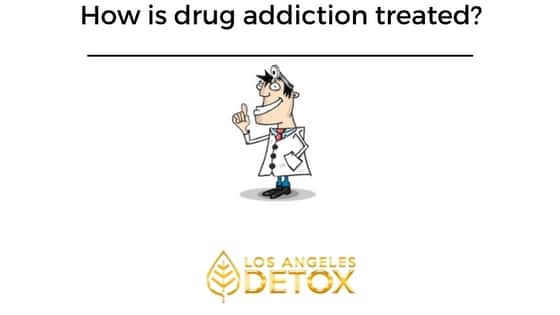Drug addiction can be treated in many different ways. Because of the nature of drug addiction, short-term, one-time addiction treatment is usually not enough. Most people get the best results when they enter a long-term addiction treatment program that involves the family and friends of the drug addict.
The type of treatment or combination of treatments will be different for everyone. There are several evidence-based approaches to treating addiction. A lot of drug addiction treatment programs include behavioral therapy (such as cognitive-behavioral therapy or contingency management), medications, or a combination of both medication and behavioral therapy
Medicine used for opioid addiction:
- Methadone
- Buprenorphine
- Naltrexone (long-acting naltrexone implants are available)
Medicine used for tobacco addiction:
- Nicotine patches, gum, lozenges, and nasal spray
- Varenicline
- Bupropion
Medicine used for alcohol addiction:
- Disulfiram
- Acamprosate
- Naltrexone
Alcohol addiction commonly co-occurs with other drug addictions, like addiction to prescription pills.
Treatment for prescription pill addiction
Treatments for prescription drug abuse tend to be similar to those for illicit drugs that affect the same brain systems. For example, Buprenorphine used to treat heroin addiction can also be used to treat addiction to opioid pain medications. Addiction to prescription stimulants, which affect the same brain systems as illicit stimulants like cocaine, can be treated with behavioral therapies, as there are not yet medications for treating addiction to these types of drugs.
Behavioral therapies
Behavioral therapies help motivate people to:
- Participate in drug treatment
- Offer strategies for coping with drug cravings
- Teach ways to avoid relapse
- Help others deal with relapse
Behavioral therapies are also good for building the following skills:
- Communication
- Relationship
- Parenting
Most treatment programs use an individual and group therapy approach. Group therapy helps establish behavioral contingencies that promote abstinence and a drug-free lifestyle. Evidence-basedAcamprosate treatment approaches like behavioral therapy and contingency management are being adjusted to work in a group therapy environment to save time and money.
A combination of behavioral therapies and medications generally appears to be the most effective way to treat drug addiction.
People suffering from drug addiction virtually always suffer from one or more of the following issues:
- Health
- Occupational
- Legal
- Family
- Social problems
The above issues should be addressed immediately upon entering an addiction treatment program. The best treatment programs provide a combination of therapy and other services (other services include appointment scheduling, taxi service, vocational help, and more to meet the patient’s’ needs). Psychoactive medications, such as antidepressants, anti-anxiety agents, mood stabilizers, and antipsychotic medications may be critical for treatment success when patients have co-occurring mental disorders such as depression, anxiety disorders (including post-traumatic stress disorder), bipolar disorder, or schizophrenia. In addition, most people with severe addiction abuse multiple drugs and require treatment for all substances abused.







